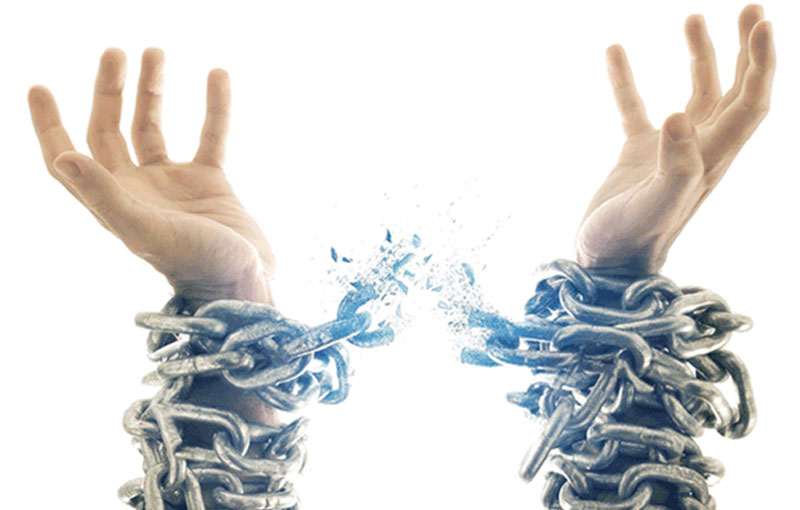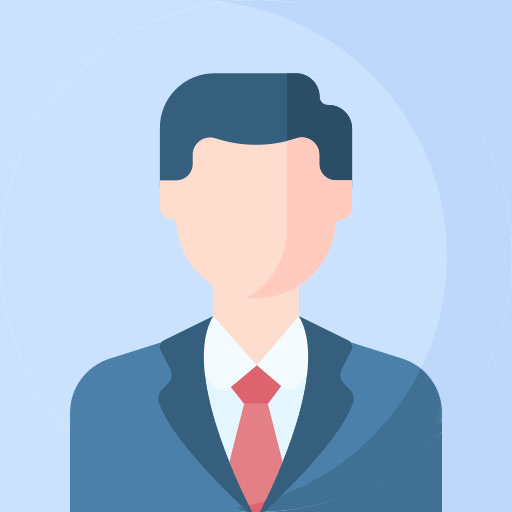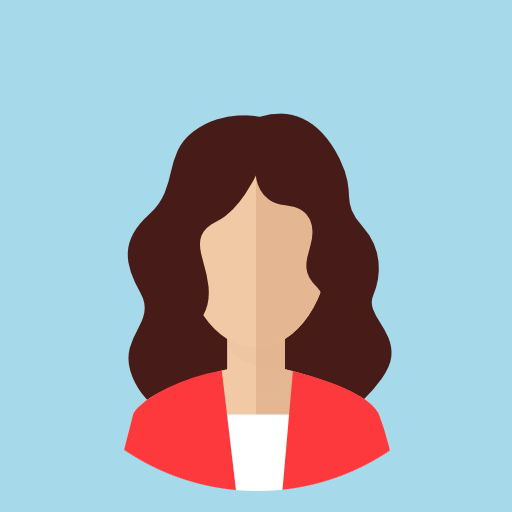Addiction & Recovery
About Addiction & Recovery
What is Addiction?

Recovery Principles:
- People with mental illness and/or addictive disease can and do recover.
- Every person's journey to recovery is individual and unique.
- Recovery should be defined through the eyes of the consumer rather than the provider.
- Recovery is a process of growth.
- Recovery is not necessarily a smooth transition from one stage to the next.
- Recovery involves changing one's attitudes, taking on new roles and developing new skills.
- Recovery requires sustaining hope. Relapse Prevention Plan
Relapse Prevention Plan:
- Knowledgeable about addiction and relapse prevention
- Stronger and healthier both physically and mentally
- Skilled in problem solving and clear thinking
- Skilled in using positive relaxation techniques
- An expert communicator
Focus Area:
Admission counselors are available 24X7 at:
Off : 90735 23685
Helpline : 9836762985
E-mail : prayas.centre@hotmail.com
Address : 14/73/B/1, Uttarpra Road, Rahara Khardah , Kolkata- 700118
Recovery
Rehabilitation, Recovery & Reintegration
There has been a shift in the paradigm guiding mental health and rehabilitation services for person with (Mental) psychiatric illness. RECOVERY model has been agreed and accepted world over and is followed at KHARDAH PRAYAS CENTRE.
Recovery Means CLINICAL RECOVERY:
Personal Recovery:
Recovery oriented mental health rehabilitation services are:
De-Emphasising on diagnosis and pathology
Re-emphasising on the strengths and personal growth
We at KHARDAH PRAYAS CENTRE follow Recovery model which includes understanding, accepting or overcoming
Phases of Recovery:
Overwhelmed by disability and how the person is treated Struggling with the disability and rebuilding connection to the self, others, the environment and meaning and purposes Living with disability and new connection to the self others the environment and meaning and purposes. Living beyond disability: authenticity, connectedness and contribution
KHARDAH PRAYAS CENTRE psycho social rehabilitation centre has the distinction of able to cater to and fulfil the needs of the person with mental illness and the related family. The programs and evolution of the programs are an example of the response PRAYAS CENTRE as a professional body to the changing and evolving psycho social field.
Counselling:
KHARDAH PRAYAS CENTRE has team of counsellors who are all post graduates in psychology and special interest and training in abnormal psychology to counsel the residents. The counselling sessions happen at regular intervals while the counsellor meets the residents on a daily basis. Counsellor is the one point person who co-ordinates with the whole team and is the main contact person for the family all visits and updates.
Family Interventions and Therapy:
Drug De- Addiction and Rehabilitation:
At KHARDAH PRAYAS CENTRE people with following drug abuse are commonly seen and treated:
- Nicotine
- Marijuana
- Heroin
- LSD
- Inhalants
- Prescription drug abuse like sleeping pills
- Injectable abuse like Pethidineetc
At KHARDAH PRAYAS CENTRE for alcohol and Drug De-addiction and rehabilitation specialists deal with each of the drug addiction in the most professional way so that reasons for abuse/dependency are analyzed along with its effects on the system and environment of the individual so that holistically all issues are addressed.
At KHARDAH PRAYAS CENTRE for alcohol and Drug De-addiction and rehabilitation the program is tailor made to suit the needs of the individual as needs and requirements are unique to each individual and manifestations of the problems at each stage are different. Here the focus is on not just the drug but also the associated manifested or underlying mental health problem without addressing which recovery is incomplete and efforts are futile. There is equal stress on psycho education of the family also.
- NA meetings
- Bio-Psycho-Socio Education lectures
- Group Intervention
Alcohol De- addiction Programs:
Individual Therapies:
KHARDAH PRAYAS CENTRE for Alcohol & Drug De-Addiction and rehabilitation has recovery oriented interventions apart from group interventions, one to one by the trained de addiction psychologists supported by clinical psychologists which are overseen by de addiction specialist under the guidance of psychiatrist. The residents are selected on set criteria for residential program for those who need brief interventions and non residential settings same is offered at MIND TALK.
Group Interventions:
- Group discussions
- Bio-psycho-social lectures about the alcohol and related problems
- Reflexions
- A meetings. PRAYAS CENTREcentre for Alcohol & Drug De-Addiction and rehabilitation has recovery oriented interventions apart from group interventions, one to one by the trained de addiction psychologists supported by clinical psychologists which are overseen by de addiction specialist under the guidance of psychiatrist. The residents are selected on set criteria for residential program for those who need brief interventions and non residential settings same is offered at MIND TALK.
Drink Refusal Skills:
Drink refusal skills are imparted to persons willing to abstain from alcohol as to how confidently but assertively refuse to budge for the social pressure to drink alcohol and not feel guilty about the refusal. The residents at KHARDAH PRAYAS CENTRE will have opportunity to deliberate and discuss about this skill in group settings along with other residents under the supervision of bare-foot counsellor.
Problem Solving Skills Training:
Assertiveness Skill Training:
Relaxations and Stress Management Skills Training:
Cognitive Restructuring:
Cue Exposure and Management:
Couple Therapy and Family Therapy:
After Care Services:
- Build a fresh, rewarding relationship with the addict
- Be supportive without setting themselves up for disappointment
- Avoid enabling destructive behavior
- Set and maintain boundaries
- Cope with relapse
- Deal with the practicalities of sober living, such as helping the addict find a job and deal with the stigma of addiction
- Local AA/ NA meeting addresses are provided on discharge. Regular contact with the client is also established via social media and emails.
Our Daily Schedule
| 06:15 A.M. | WAKE UP |
| 06: 30 A.M. | MORNING PRAYER |
| 06:30 A.M. TO 07:00 A.M. | SELF CLEANING |
| 07:00 A.M. TO 07:45 A.M | 07:00 A.M. TO 07:45 A.M PRAYER & MEDITATION ( RELIGIOUS PRACTICE NOT PERMITTED) |
| 07: 50 A.M. TO 08:20 A.M. | HOUSE CLEANING |
| 08:30 A.M. | BREAK FAST |
| 09: 15 A.M. TO 09: 45 A.M. | OCCUPATION THERAPHY |
| 10:00 A.M. TO 10:30 A.M. | 10:00 A.M. TO 10:30 A.M. READING SESSION (COLLECTION OF PERSONAL STORIES OF RECOVERING ADDICTS/ ALCOHOLICS FROM ALL OVER THE WORLD) |
| 10:40 A.M. TO 11:20 A.M. | BATHING AND WASHING PERSONAL CLOTHES |
| 11:30 A.M.TO 12:30 P.M. | INPUT SESSION (DETAILED INFORMATION ON ADDICTION / ALCOHOLISM AND RECOVERY) |
| 01:00 P.M. | LUNCH |
| 01:20 P.M. TO 02:20 P.M. | REST |
| 03:15PM to 04:00PM | REST |
| 02:25 P.M. TO 02:55 P.M. | ASSINGMENT (WRITING ANSWERS OF DEFINITE QUESTIONS ON LIFE OF ONESELF & HIS ADDICTION RELATED HISTORY) |
| 03:00 P.M. TO 04:00 P.M. | Group Discussion (ON THE ANSWER WRITTEN IN THE PRIVIOUS SESSION) |
| 04:05 P.M. TO 04:15 P.M. | RED TEA |
| 04:15 P.M TO 04: 40 P.M. | HOUSE CLEANING |
| 05:00 P.M. TO 05.25 P.M. | P.T. / YOGA / EXERCISE |
| 05:30 P.M. TO 06:00 P.M. | TIFFIN & TEA |
| 06:00 P.M. TO 06: 50 P.M. | LEISURE TIME (PLAYING CAROM, CHESS, LISTENING MUSIC , WATCHING T.V. , READING NEWSPAPER, EVENING BATH.) |
| 07:00 P.M.TO 08:00 P.M. | NARCOTICS ANONYMOUS / ALCOHOLIC ANONYMOUS MEETING |
| 08:05 P.M. TO 08:55 P.M. |
BREAK |
| 09:00 P.M. TO 09:35 P.M. | DINNER |
| 09.40 P.M. TO 10:40 P.M. | DAILY INVENTORY(WRITING & ANALYSIS OF THAT INVENTORY ALSO) |
| 10:45 P.M. | LIGHT OFF |
What we offer
We heal with the latest innovations in Science.
Treatment Facility
Management of chemical dependency is a complex issue which has to be handled by professionals specialized in various discipline...
Addiction & Recovery
Addiction is a primary, chronic disease of brain reward, motivation, memory and related circuitry. Dysfunction in these circuits...
Cleint List
Our gratitude to all those ex- clients who started their journey of recovery from Prayas Centre. Though Addiction/ Alcoholism is a disease...
Feedbacks from clients
What our clients say



